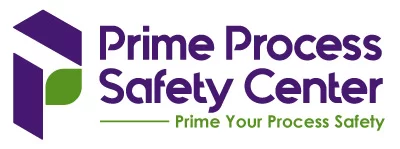
Process Safety Mentoring and Support Programs Training is an essential initiative designed to foster a culture of safety and continuous improvement within organizations. This training focuses on developing the skills and knowledge of experienced professionals to mentor and guide less experienced staff in the nuances of process safety. The training covers key concepts of mentorship in the context of process safety, including effective communication techniques, knowledge transfer strategies, and the development of leadership skills. Mentors are equipped to provide guidance on various aspects of process safety, from understanding complex regulatory requirements to applying best practices in daily operations.
In addition to technical knowledge, the training also emphasizes the soft skills crucial for successful mentoring relationships. This includes fostering a positive safety culture, encouraging open dialogue about safety concerns, and promoting a proactive approach to identifying and mitigating risks. The program aims to create a network of safety champions within the organization who can influence and inspire others towards higher safety standards. Through this mentorship and support training, organizations in the process industry can enhance their overall safety performance, reduce incidents, and ensure a more knowledgeable and engaged workforce committed to maintaining high safety standards.
Process Safety Mentoring and Support Programs Training
The “Process Safety Mentoring and Support Programs Training” is designed to cultivate a robust safety culture through effective mentoring and support.
our content of such a training program includes:
- Introduction to Process Safety Mentoring:
- Overview of the role and importance of mentoring in process safety.
- Understanding the objectives and benefits of a mentoring program in the context of process safety management (PSM).
- Distinction between mentoring and coaching in a process safety environment.
- Fundamentals of Process Safety:
- Comprehensive review of key process safety principles.
- Overview of regulatory frameworks and industry standards in process safety (e.g., OSHA PSM, EPA RMP).
- Introduction to hazard identification, risk assessment, and management practices.
- Role of a Mentor in Process Safety:
- Responsibilities and expectations of a process safety mentor.
- Strategies for effective knowledge transfer and skill development.
- Techniques for fostering a positive safety culture and promoting proactive safety behaviors.
- Communication and Relationship Building:
- Skills for effective communication and active listening in a mentor-mentee relationship.
- Building trust and respect in professional relationships.
- Handling sensitive issues and providing constructive feedback.
- Mentoring Techniques and Tools:
- Tools and resources for effective mentoring in process safety.
- Case studies and scenario-based learning to illustrate successful mentoring practices.
- Developing personalized mentoring plans and setting achievable goals.
- Safety Leadership and Influence:
- Leadership skills for mentors to effectively influence safety practices.
- Techniques for inspiring and motivating mentees towards continuous safety improvement.
- Building and leading safety-focused teams.
- Monitoring and Evaluating Mentoring Outcomes:
- Methods for assessing the effectiveness of the mentoring program.
- Techniques for continuous improvement of the mentoring process.
- Gathering and acting on feedback from participants.
- Advanced Topics in Process Safety:
- Current trends and emerging issues in process safety.
- Addressing complex and high-risk scenarios in mentoring discussions.
- Incorporating technology and innovation into process safety practices.
- Practical Workshops and Role-playing Exercises:
- Hands-on sessions for practicing mentoring conversations and scenarios.
- Role-playing exercises to simulate real-life mentoring situations.
- Collaborative workshops for sharing experiences and best practices.
- Developing a Mentoring Program in Your Organization:
- Guidelines for establishing and implementing a successful process safety mentoring program.
- Strategies for engaging senior management and securing organizational support.
- Customizing the mentoring program to fit organizational needs and culture.
Why get Trained by Prime Process Safety Center
Opting for our Process Safety Mentoring and Support Programs Training in the process industry ensures your organization benefits from a comprehensive, expertly designed curriculum tailored to the unique challenges and requirements of process safety. Our team of seasoned professionals brings a wealth of real-world experience and in-depth knowledge, ensuring that the training is not only theoretically sound but also practically relevant. We focus on interactive and engaging training methodologies, incorporating case studies, hands-on exercises, and role-playing scenarios that enhance learning and retention. Our program is designed to foster effective mentor-mentee relationships, enhancing your organization’s safety culture and operational efficiency. By choosing us, you gain access to a training program that not only meets regulatory standards but also instills a proactive approach to safety management, ensuring your team is equipped with the skills to mentor effectively and support continuous safety improvement.

